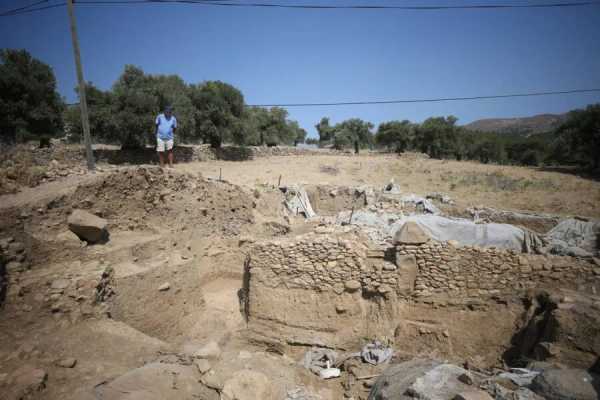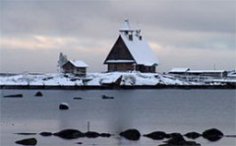Along with these five structures discovered on Gokceada Island, researchers also found remains of crops such as wheat and peas, as well as animals such as sheep and pigs.

AA PhotoThe discovery showed that a permanent settlement existed on the island long before experts believed.
The discovery has given historians new insights into the early settlement of the Aegean region. For decades, Knossos was the only site in the region to show evidence of Neolithic agriculture. Now, Gokceada has joined Knossos, further confirming that the Aegean region was home to many independent farming communities in the 7th millennium BCE, rather than a single centralized settlement.
Botanical and faunal remains support this claim. Researchers at Gökçeada have found domesticated wheat, barley, peas, and lentils—crops that were likely originally brought from the mainland before being brought here. Meanwhile, animal bones at Gökçeada indicate the existence of agriculture that also included sheep, goats, cattle, and pigs.
“Here we see the earliest evidence of agricultural and livestock economy, the first examples of pottery, metallurgy and monumental architecture. It also symbolizes the beginning of urbanization. That is why this place is of great importance for the Aegean region,” Erdoğu told Hurriyet Daily News.
Maritime trade was also evidently active. Obsidian tools from Melos and flint tools from Anatolia and the Balkans found at the site indicate early long-distance trade links across land and sea. Pottery and tools found here also demonstrate a high level of craftsmanship, such as decorated pottery with geometric patterns.
Rewriting the Early History of Agriculture in Europe
Erdoğu noted that all this is unprecedented for a find in the Aegean Sea and proves that there was a permanent, rather than seasonal, settlement here.
“The settlement of Ugurlu is the only place in the Aegean Sea where ancient agricultural communities have been preserved, along with Knossos in Crete,” the professor said.
Sourse: www.allthatsinteresting.com





